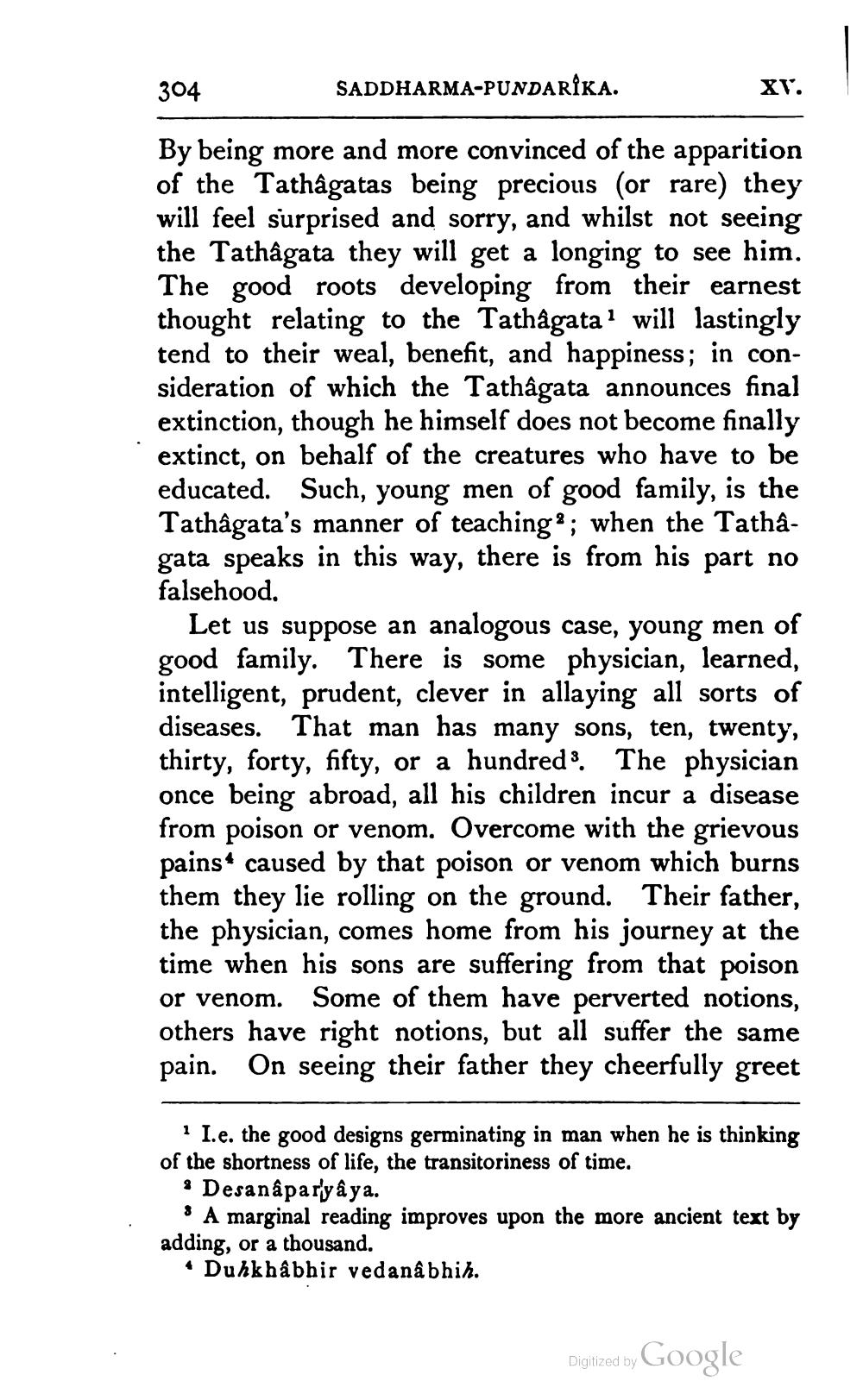________________
304
SADDHARMA-PUNI
XV.
By being more and more convinced of the apparition of the Tathagatas being precious (or rare) they will feel surprised and sorry, and whilst not seeing the Tathâgata they will get a longing to see him. The good roots developing from their earnest thought relating to the Tathagata' will lastingly tend to their weal, benefit, and happiness; in consideration of which the Tathagata announces final extinction, though he himself does not become finally extinct, on behalf of the creatures who have to be educated. Such, young men of good family, is the Tathagata's manner of teaching?; when the Tathagata speaks in this way, there is from his part no falsehood.
Let us suppose an analogous case, young men of good family. There is some physician, learned, intelligent, prudent, clever in allaying all sorts of diseases. That man has many sons, ten, twenty, thirty, forty, fifty, or a hundreds. The physician once being abroad, all his children incur a disease from poison or venom. Overcome with the grievous pains* caused by that poison or venom which burns them they lie rolling on the ground. Their father, the physician, comes home from his journey at the time when his sons are suffering from that poison or venom. Some of them have perverted notions, others have right notions, but all suffer the same pain. On seeing their father they cheerfully greet
1 I.e. the good designs germinating in man when he is thinking of the shortness of life, the transitoriness of time.
: Desanâparyâya.
: A marginal reading improves upon the more ancient text by adding, or a thousand.
• Duhkhâbhir vedana bhin.
Digitized by Google




